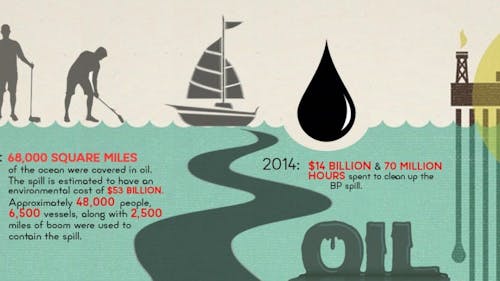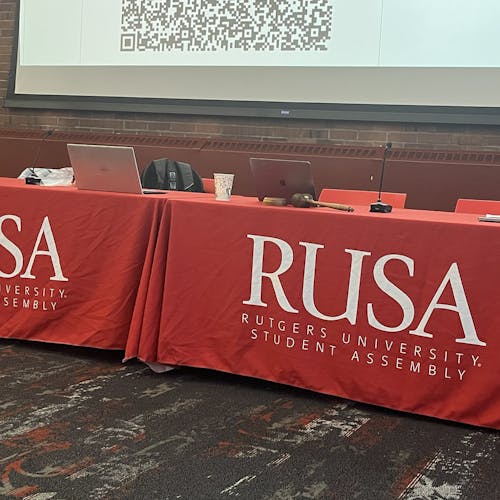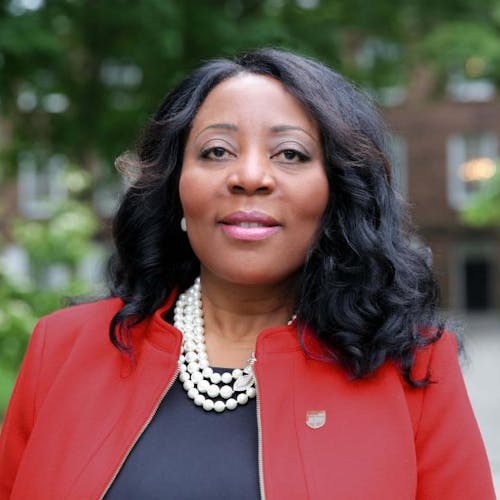Rutgers professor discusses effect of oil spills on fisheries

In 2010, the largest accidental marine oil spill in the history of the petroleum industry took place in the Gulf of Mexico, and a federal judge in New Orleans approved an estimated $20 billion settlement on Monday in regard to the BP oil spill, according to ABC News.
The deepwater Horizon oil spill, commonly referred to as the BP oil spill, took 87 days to get capped, with nearly 134 million gallons discharged into the water, according to ABC.
At least 11 people died in the incident and the spill impacted 68,000 square miles of the ocean. Beaches, wetlands and estuaries were directly impacted, along with their wildlife and ecosystems.
A $20 billion settlement was approved, but BP has estimated that total costs related to the spill will be more than $53 billion.
Recovery of the wetlands, insects and fish after the five years following the spill has improved, NOLA reported, with a relatively small amount of oil remaining in the wetlands.
Paola Lopez-Duarte, assistant research professor in the Rutgers University Marine Field Station, conducted research on the responses of estuarine fish to oil population of the spill, and she said the marsh food web in areas that were exposed to the oil spill are now as healthy as those unexposed.
“The marshes are not only a natural resource for food, a lot of the fishes species that we eat tend on these marshes as nursery habitats. They’re the filters of our oceans and coastal areas,” Lopez-Duarte said.
Humans put a lot of stress on the coastal marshes, Lopez-Duarte said. Examples of this could be seen in Louisiana and even in New Jersey with rising sea levels.
“I think when you have a system that provides these services we should all be aware of the services they provide to humans,” she said. “And also be aware that it’s not the only bad thing we do to them. (The oil spill) is certainly something that could happen anywhere, not just in the coastal U.S.”
While scientists and researches have found certain areas and aspects of the ecosystem that look either improved or healthy, there is still damage found on the coastal gulf and in shallow water.
According to the National Oceanic and Atmospheric Administration, a study published in October 2015 in the journal, Coral Reefs shows that the a 16-mile footprint of damage also extends to coral communities in shallower Gulf waters, up to 67 miles away from the wellhead.
The recovery of the oil spill should be placed largely in the hands of the corporations responsible, said Michelle Lotfalla, a School of Arts and Sciences junior.
“I knew about (the oil spill) once it happened, but I never looked into it too much,” Lotfalla said. “I think it’s definitely a responsibility of the corporations to clean up the mess — it shouldn’t be the government's job to clean it up.
Lotfalla also said that the corporations responsible for the spill should specifically be liable for contaminating the waters and rebuilding the wildlife.
“They can’t be acting so recklessly, (and they cannot) just (leave the mess) as a disaster,” she said.
At the peak of the oil spill in 2010, the response effort involved "approximately 48,000 people, 6,500 vessels and the deployment of 2,500 miles (13.5 million feet) of boom to contain or absorb the oil," according to the BP website.
By the end of December 2014, BP had spent more than $14 billion and the same number of workers devoted more than 70 million personnel hours to response and clean-up activities, also according to the website.
The final settlement of BP is a sign that things are going in the right direction, said Michael Jagacki, a School of Arts and Sciences senior.
In regard to the improvement of the marshes and wildlife overall on the Louisiana Coast, any positive changes are beneficial, Jagacki said.
“Whatever they have been doing has been working,” he said. “Hopefully they can continue to make these improvements.”
Samantha Karas is a School of Arts and Sciences senior majoring in journalism and media studies and English. She is a correspondent for The Daily Targum. Follow her on Twitter @samanthakaras for more.



